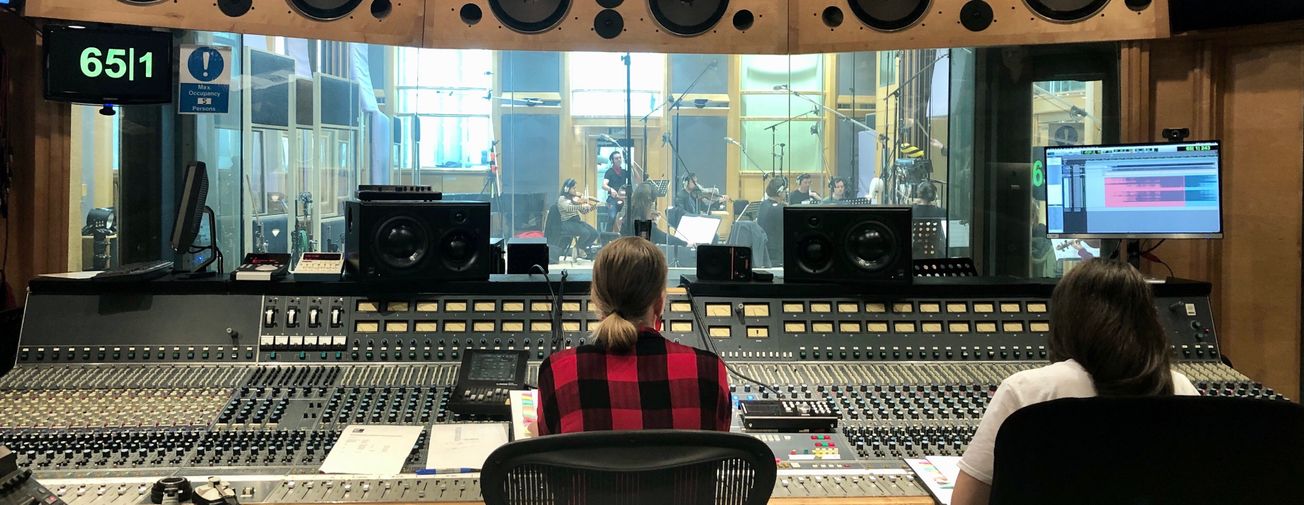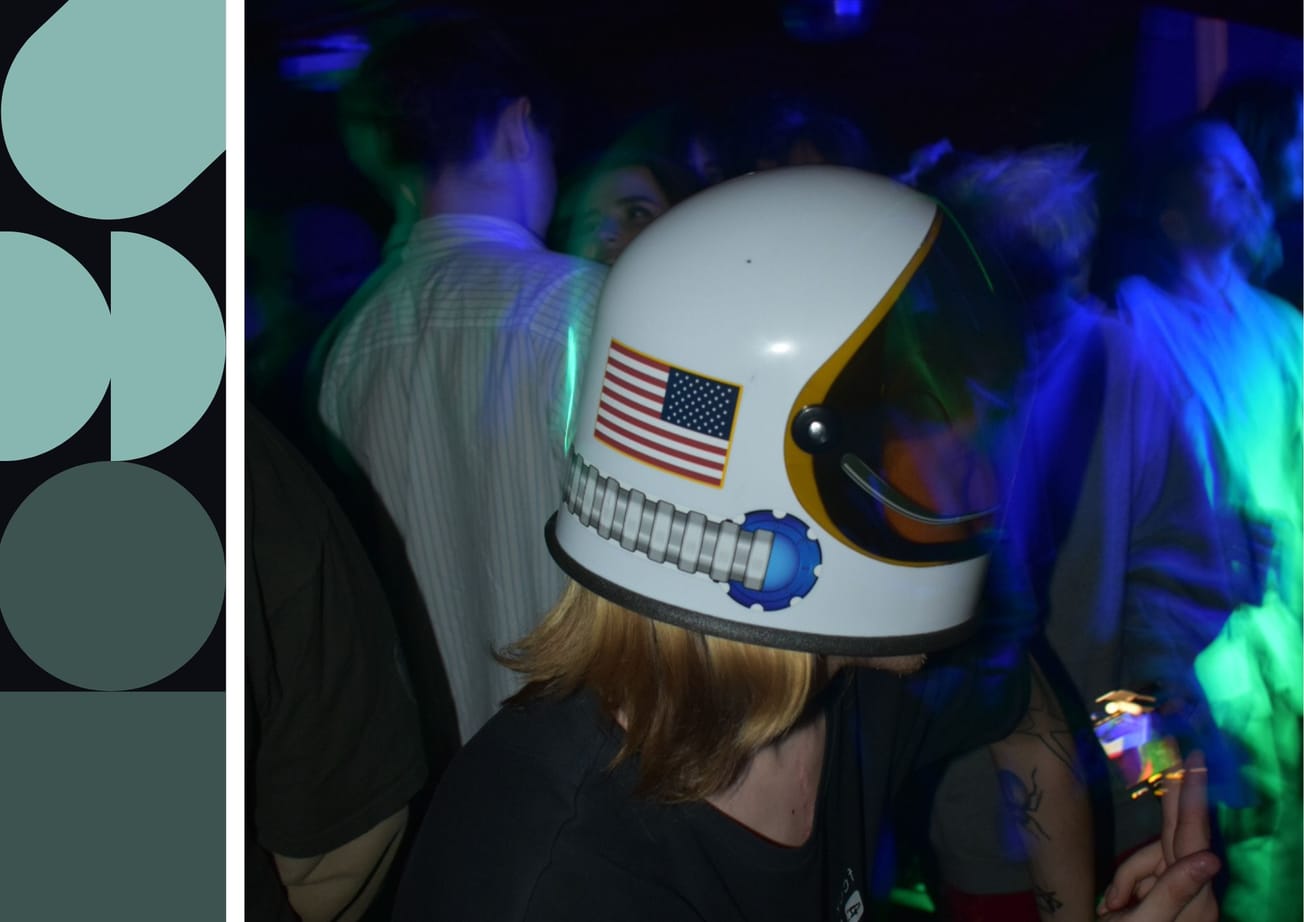By Lauren Paddison, Music Subeditor.
‘I remember driving past the Victoria Rooms with my dad when we were visiting universities and saying, “Can you imagine studying there?”’
Sarah Playford graduated from Bristol with a BA in Music in 2016. With ambitions to compose film music since the age of 16, further study at the Royal College of Music (RCM) would see her collaborate with Gavin Greenaway (Dunkirk, Hunger Games, TRON: Legacy), RADA, Gary Yershon, The Old Vic, Netflix, as well as the London Contemporary Orchestra (LCO).
Playford sat down with Epigram to take us through all things film music. Reflecting on her time since leaving Bristol, she remembers: ‘I fell in love with the city. There is so much vibrancy and life; being a composer you kind of suck up all these things and use them in your work, so that attracted me the most.’
The course content of a Bristol music degree was refreshing for Playford, the elements of contemporary composition feeling ‘really fresh and not too rooted in tradition.’ The diversity encompassed in her undergraduate degree only propelled Playford’s interest in composition – ‘I still look back on the music we studied, because it’s music I would have never crossed paths with otherwise. I loved it for that.’
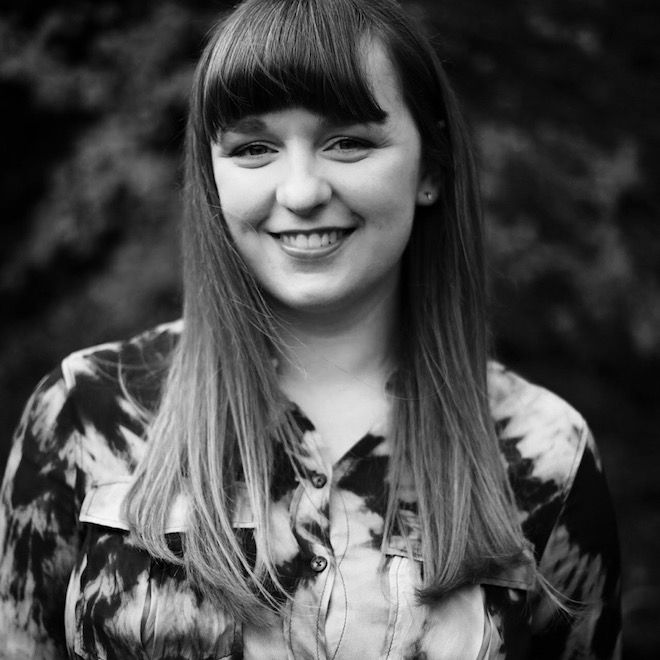
Joining the Choral Society (now Bristol University Symphony Chorus) was the perfect fit for Playford as a young pianist and composer, remembering fondly their performance of Elgar’s The Kingdom. ‘I learnt so much about harmony and different lines in composition. By then, I knew what my heart was set on.’ Involvement in the composition society also afforded Playford the opportunity to collaborate with other musicians and composers – ‘we’d workshop each other’s pieces, or it could be studying a piece together, whatever we fancied.’
Playford was just sixteen when she attended a workshop event for young people held by the Royal College of Music which involved scoring music for scenes from the Lord of the Rings and the Incredibles. That was all it took – ‘I remember going home saying “this is what I want to do!”’ It was no surprise then, that come December of her final year, she had secured a place on the two year Composition for Screen master’s programme at RCM.
Playford shares her experience of the mix of feelings surrounding graduation: ‘I took three months to just think and not put pressure on myself’, her reassurance is honest and makes me laugh – ‘people going into banking are not going to get a job straight away either.’
‘I knew it was going to be slow, and I knew it was going to be tough’ is Playford’s reflection on leaping straight into a freelance career – ‘the first year was really rocky for me.’ But opportunity is never far away when you spend all your energy looking for it: ‘I started getting my first projects from collaborations I’d made during my time at the RCM. We were introduced to young student directors from surrounding film schools and institutions like the London Film School and Royal College of Art. I’m still friends with many of them now and we still work together.’ Embedding yourself in working communities in your field can never be a bad or fruitless thing, Playford stresses ‘I think for anyone going into composition or film composition it’s about nurturing relationships, and as with friendships, they take years to become something that you always have.’
Chance meetings can often be the start of something huge in the freelancing world, as was the case for Playford in 2018 - ‘I happened one day to meet this guy at a recording session who introduced me to his friend who recommended a society for women film composers. From there, there was a competition for an orchestration project, and I submitted a piece that I’d recorded at RCM, and I got it. Looking back, it’s weird to think that that one meeting is what unlocked it all.’
‘It’s one of those things’ Playford says, ‘– that was luck. But I think you can put yourself in the way of luck.’ She advises, ‘be really personable; be a human. You learn as you go, and you learn to just be a friend, to be kind, to be interested in the people you’re talking to – that got me places.’ The dilemma of whether creatives should flood to the capital is one I have contemplated many times, as I’m sure many of those starting out in the industry have, too. Playford admits that ‘the music business is so international, so most hubs tend to be there’, but at the same time assures ‘I know people who did the same masters at Bristol and are thriving in the same industry; it makes you interesting, I think, to be somewhere different.’
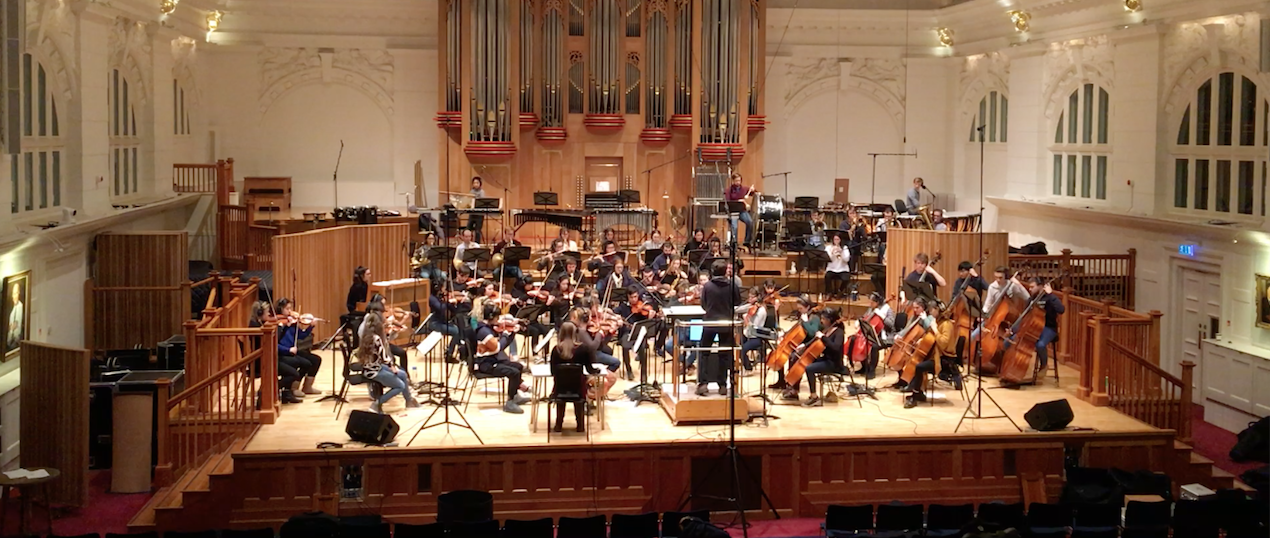
On freelancing, Playford tells me that ‘you have to test yourself. You have to put feelers out and see what works and what doesn’t – no one can really teach you that’. There is both freedom and trepidation in the realisation that ‘as individuals we’re all designed for different things; don’t be afraid to reach out and present yourself. It sounds like I’m saying all the stuff I feel like everyone hears, but it’s true.’
Space Chimp was a project of Playford’s during her time at RCM and is the fruit of being tasked to write and record for a 60-piece orchestra. Working in collaboration and receiving feedback from big industry names such as Gavin Greenaway, Playford remembers, ‘it was mind-blowing.’ Leading on to bigger things, Playford owes future collaborations with the LCO to her Space Chimp project – ‘having that in my portfolio has massively changed my career so far.’
Playford’s credits also appear on the short animation ‘Barbeque’ by Jenny Jokela – a strikingly visual journey of post-traumatic stress disorder and the associated shame and disembodiment. The animated sequel ‘Lemonade’ is an upcoming project for both Jokela and Playford.
Barbeque from Jenny Jokela on Vimeo.
‘Strength’ is also a standout project, focusing on female physicality and emotional strength, written shot and produced by an all-female crew. Set to a poem by Adele Hampton, Playford’s music dutifully serves the imagery and powerful words to a vivid extent.
Strength from Hedvig Ahlberg on Vimeo.
Playford advocates for both the Alliance for Women Film Composers and shesaid.so as communities of support – ‘we post about each other’s work on our socials, they post opportunities, jobs, that kind of thing.’ ComposeHER 2019, a project celebrating works from female composers of film and TV, was another platform stemming from these initiatives in which Playford was able to be heard as an orchestrator for Anne Nikitin (American Animals, Mrs Wilson) and Jessica Jones (Exposed, The Disappearance of Madeleine McCann). In collaboration with London Contemporary Orchestra, Playford describes that ‘to be able to orchestrate for female composers was brilliant. We were all women sat thinking “this is awesome”, doing BBC dramas, electronic music, Line of Duty. It was really cool, and really empowering.’
Noticing that a lot of Playford’s work either serves or has stemmed from organisations seeking to platform women in the industry, it seemed important to ask if this is something she ever fully intended. ‘No, it’s just happened’ was her reply. ‘I was studying at RCM in the middle of the #metoo movement, so it was a really interesting time leaving – all the programmes I joined and all the communities I joined were trying to combat this issue.’
Playford recites ‘in the top 250 grossing films of 2019, women comprised 6 per cent of composers’, and a brief silence falls between us. ‘I never felt like gender was an issue, at Bristol I didn’t feel like it was an issue and at RCM I didn’t either. But suddenly you’re bombarded with these facts at the same time as #metoo and it was quite intimidating.’ Whilst not defined by this time, Playford recognises ‘I was nurtured through it.’
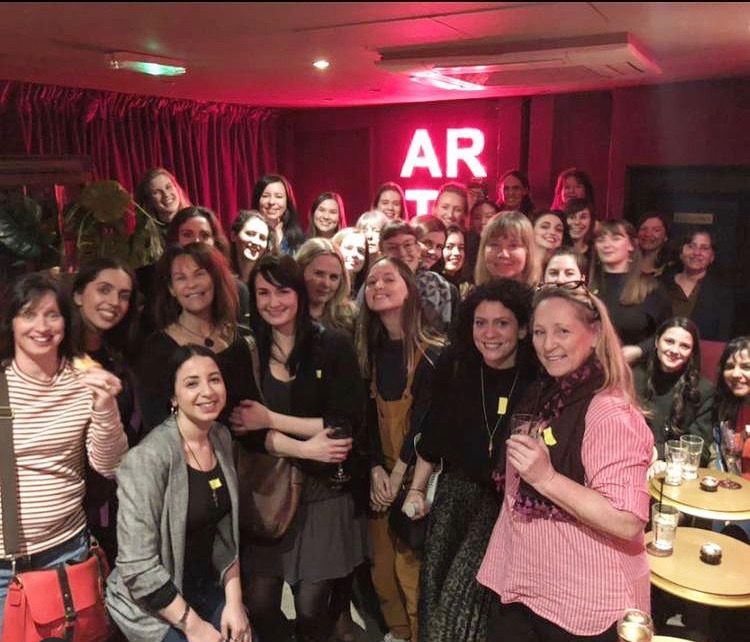
‘I think it’s odd because people question: “Am I getting these opportunities now because I’m a woman?”’ she states, shedding a different light on the task of establishing yourself in the industry. ‘It’s a difficult subject’ Playford confesses, ‘but we have to remember the bigger picture which is that 95 per cent of the top jobs go to men. So actually, I'm not going to sit here and feel guilty about the one project I did get.’ There is a hint of enervation in her voice as she chances ‘I hope we can get past the “people are just hiring me because they want to fill a quota feeling.”’
The #metoo movement sent ripples through society and there was an evident shift in attitude. ‘Suddenly everyone cared about these figures, men as well. People wouldn’t laugh it off as they would have before.’ Whilst the movement might have seen the beginnings of this shift, it has in no way diminished – ‘I think it’s creating things that are lasting. The communities I’m involved in, I can’t see them ever dissolving. We still propel each other.’
Playford’s music also features on the album 100% HER, in collaboration with shesaid.so and Universal Production Music, which is entirely written, produced, mastered and released by women. Their agenda was more than this single release and show no signs of yielding when promoting female artists. Playford says of the industry now, ‘It’s a kinder place for women to come into’ and ‘there’s more opportunity out there that women should definitely seek out.’
On being a composer during a pandemic, Playford admits ‘there was a lot of uncertainty around whether I was going to get paid for anything this year, or what was going to happen.’ Her tone is quickly flipped upwards – ‘but I will say this; musicians are incredible at adapting. And it’s something that I think is unique – we do battle with difficult times and we learn the sides of ourselves that can adapt.’
Playford chose to embark on a number of projects that adapted to life in a pandemic, namely production and commercial projects (‘lots of COVID commercials out there!’) whilst also admitting that her love of film and the loss of that has been the hardest to overcome; ‘I live from going to the cinema, and I missed soaking up life in that way. I think that’s been a struggle for a lot of creatives – we take a break; we take stock, we live a little and then we project it in our work.’
With the hope of more and more eased restrictions as we enter the summer months, Playford is hopeful for more and more projects more akin to her schedule pre-COVID. There is lasting sentiment in her reflection on the difficulties of the last year in the arts and extending her recognition of adaptability to creatives in a much wider sense, Playford instils ‘we are really strong in that way and I don’t think we give ourselves enough credit for it. It’s really bold and it’s a really cool way of life.’
Featured Image: Recording Session at AIR_Netflix ‘The Forgotten Battle’ / Sarah Playford

